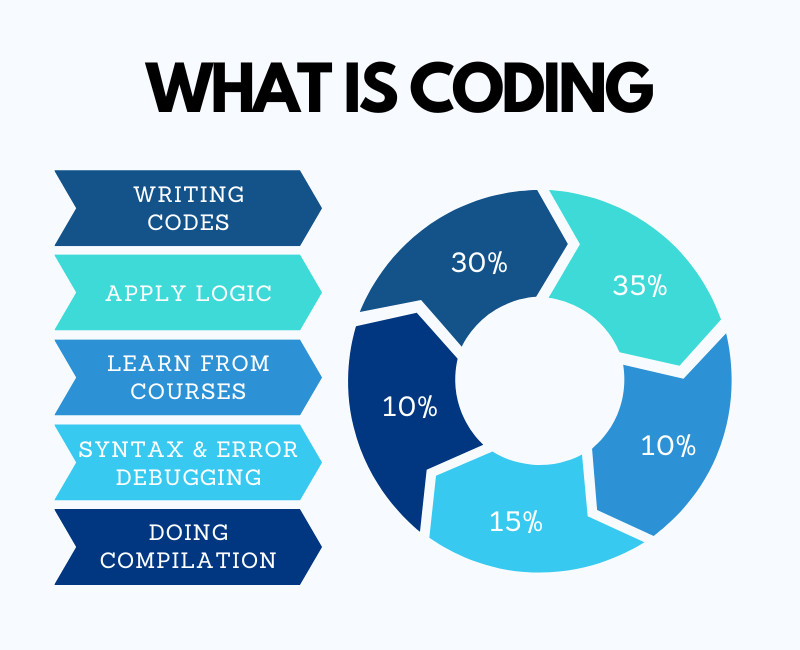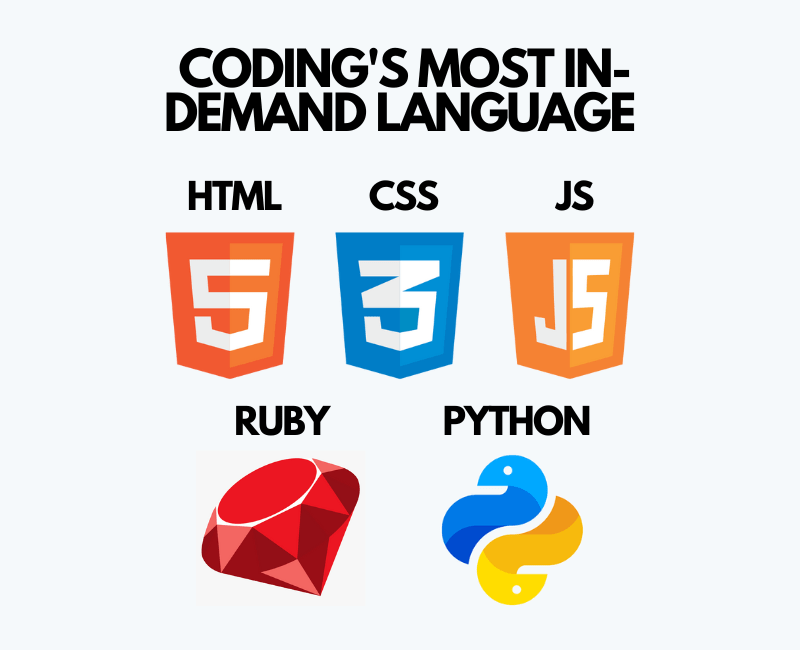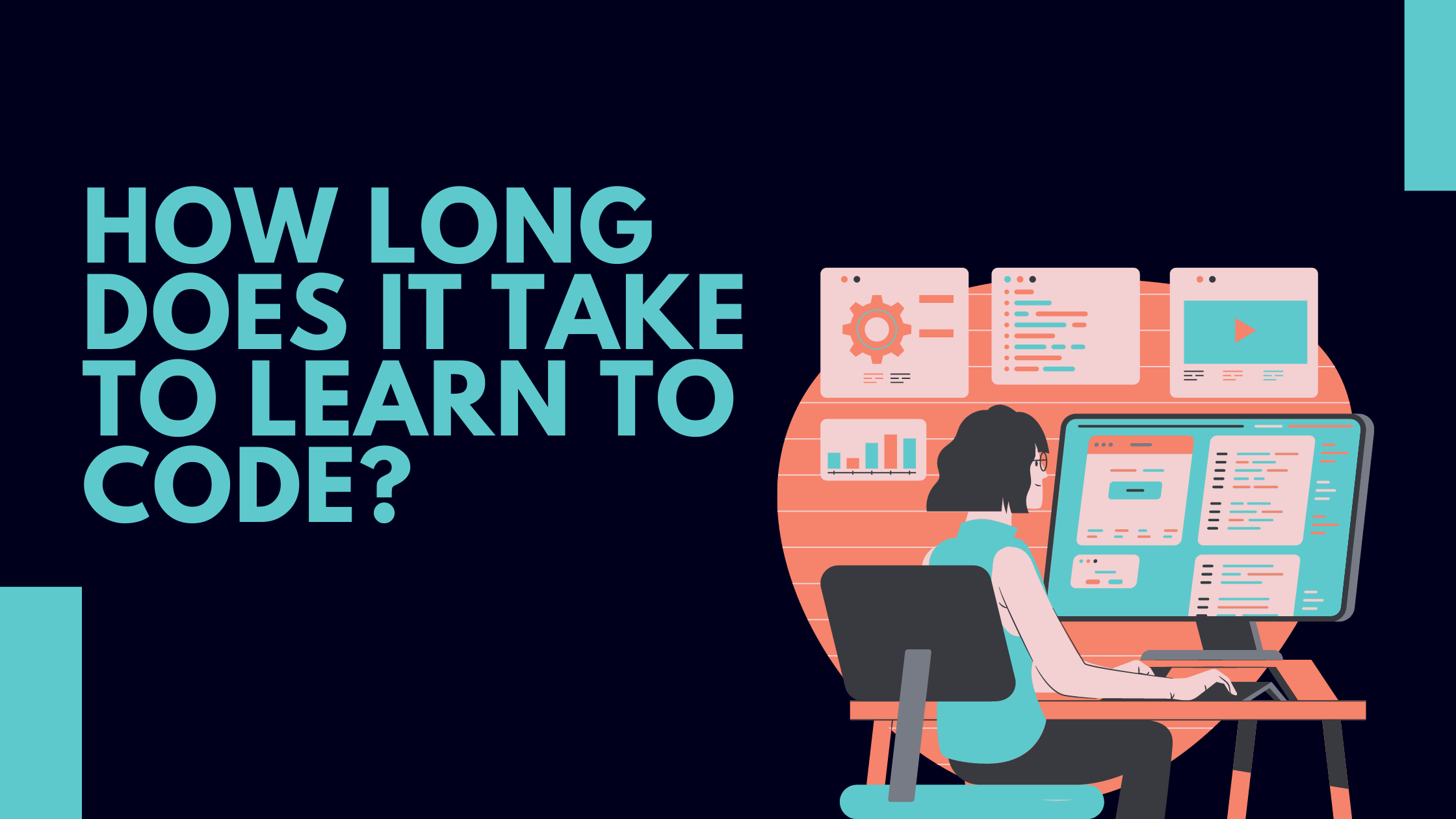Whether you want to uncover the secrets of the universe, or you just want to pursue a career in the 21st century, basic computer programming is an essential skill to learn.
– Stephen Hawking
Today, coding is one of the most lucrative professions in the marketplace. Indeed reports that employers are increasingly interested in mobile application development and machine learning as in-demand skills. In 2020, the median salary for a computer programmer was over $89,000.
When it comes to learning how to code these days, how long does it take? Is learning how to code worth the time investment? Learning to code may seem intimidating at first, but anyone of any age and experience can learn it. There are many resources available online and offline to help you learn how to code. In addition to learning new skills, you can expand your business capabilities or just have fun creating something.
In this post, we’ll go over how long it takes to learn to code, providing you with a clear idea of its significance and how Swing2App can help you accelerate your progress. This information might help you figure out when and how to begin your coding journey.
WHAT IS CODING? (HOW LONG DOES IT TAKE TO LEARN CODING)

Coding is the process of interacting with a computer; by writing code, you tell the machine what action to do. It is like a blueprint in which you instruct the computer to follow certain steps, and these steps, when combined, give rise to programs.
Coding is a critical talent to have because the demand for computer programmers is increasing these days.
It is necessary to grasp the principles of programming, including data structures and algorithms, to be comfortable with logic building and problem-solving.
HOW LONG DOES IT TAKE TO LEARN CODING
Coding is like a workout in and of itself; it also depends on your consistency, and more appreciation might help you master it.
Here is an estimate of how long it will take you to learn coding once you reach your comfort level and begin learning on your own.
| Ways | Time |
| Computer Science Degree | 3 – 4 years |
| Bootcamps | 3 – 6 months |
| Self-learning | 6-12+ months |
Most people who want to learn how to code are already graduates, therefore a CS degree is not an option for them.
However, if you want to learn to code for free, self-study is your best bet. You can learn programming languages on your own, but it will be difficult. Coding is a highly technical job that requires the use of many algorithms and complicated data structures. Learning by oneself, on the other hand, allows you to control the speed of your education. You can spend proportionate amounts of time to disciplines in which you believe you require additional practice.
Online tools such as YouTube video tutorials, programming websites, and coding books are some possibilities for self-learning coding. Once you’ve mastered the fundamentals, it’s time to put your knowledge to use. Join coding groups and forums where you can ask questions and get useful learning tips.
If you are a novice, you can begin with a fun programming language like Python or the most widely used programming language, JavaScript, to get started on the path to becoming a skilled programmer.
CODING’S MOST IN-DEMAND LANGUAGES

Python: Python is a powerful programming language that can be used for a wide range of tasks, including web development and machine learning. It is mostly used in data science.
HTML (Hypertext Markup Language) and CSS (Cascading Style Sheets). These are the building elements of the web; HTML defines what the web browser displays, while CSS informs the browser how the data should appear.
JavaScript: JavaScript is a programming language used for web development. It is often used to incorporate dynamic components into a website, such as animated visuals, pop-ups, buttons, slideshows, interactive forms, autocomplete text suggestions, and more.
Ruby: Ruby is a back-end programming language that is often used in conjunction with the Rails framework to develop online applications. It serves as the intermediary between the database and the user.
Based on your preferences, you can choose between web development and data science, and then select which languages to learn based on your specialization. Start with HTML and CSS and work your way up to JavaScript or Ruby on Rails if you want to study web programming. Python is a good place to start if you want to get into data science. Once you’ve mastered the fundamentals, you’ll be able to implement frameworks and libraries like an expert.
WHY EVERYONE SHOULD LEARN TO CODE
1. Develop Problem-Solving and Logical Skills
The heart of programming is a problem-solving ability, and studying programming is about breaking problems down into smaller bits, using your own logic and algorithms to develop a programme, and then providing a solution for that. Coding pushes your brain to think thoroughly about a problem, organise your thoughts, apply logic, and finally produce a solution.
2. Develop Interpersonal Skills
Most of the time, when you work in a team, you must collaborate with other co-workers, discuss the project with them, and interact with your manager. All these things eventually develop your soft skill, which not only aids in the development of good relationships in your professional life, but also in your personal life.
3. Technologies Are Ruling the World
Technology is ingrained everywhere, and it is undeniably a part of our daily lives. It is utilised in data analysis, banking, the food industry, education, customer service, and the health sector, as well as in the creation of an app or website that allows people to drive an automobile. It’s weird that we rely on technology a lot, but very few people know how to code.
4. Coding is Creativity
Code is often seen to be all about something computational, mathematical, tedious, and monotonous, but there is also a creative aspect to coding. When programmers notice an error in the world, it is their responsibility to examine the problem and provide an imaginative remedy. They perceive a whole picture of a problem that people face and utilise their creative logical approach to solve it.
5. Understanding of Both Sides of the Equation in Business
When it comes to finding a solution to a given problem, there is always a misunderstanding between engineers and non-programmers. When you have coding skills, you can picture or at least comprehend the risk, challenges, and time from the perspective of an engineer. As a result, learning how to code is essential for dealing with difficulties effectively.
6. Empowering and Life-Changing Experience
Programming constantly presents you with new challenges that require you to take risks, and this teaches you how to take risks in your own life. The world is full of software, apps, and websites, and building these things on your own gives you a sense of confidence and control. When a programmer solves a problem that had no solution previously, it is a life-changing moment for them.
JOURNEY OF LEARNING HOW TO CODE
Easy to start, but Takes time to master
While It doesn’t take long to get started with coding, but it does take time to become expert. After three to six months, many students believe they grasp the fundamentals of coding and are comfortable working with a programming language.
The genuine answer is determined by your history and ambitions. Do you have any logical or mathematical training? If this is the case, you have an advantage, and the timeframe may be shorter. Coding necessitates logical thinking and the ability to divide an issue into logical steps. Each line of code instructs the computer on what to do and how to do it.
The more focused you are, the faster things will go
What are your goals in learning how to code? What do you want to achieve, and what skill level is required to do it?
Most coding languages are general-purpose tools that may be used to perform a wide range of activities. After you’ve mastered the fundamentals, you can concentrate on learning how to code specific applications or address specific types of challenges.
Choosing a degree in college is equivalent to focusing on your target use cases. College students take a variety of general courses throughout their first year or two to establish a foundation of knowledge and a foundation for learning. Following that, lessons tend to be focused on their chosen topic of study. Similarly, your coding journey can begin to focus on your desired outcomes.
The reasons to learn how to code are many, each has its own time period
Your goal could be to develop a valuable job skill. It will take longer in this situation because you will need to understand the fundamentals of coding as well as how to apply these talents to solve business challenges. In addition to learning a coding language, you should become acquainted with databases, as most commercial apps rely on them.
You will also be subjected to technical interviews in which you will be quizzed on software engineering and data structures in general. The skills necessary will differ depending on the coding position you desire.
Consider the instance where you wish to learn to code to develop a website. In this situation, the entire process of learning how to code may be faster. You can personalize your learning how to code to this aim and concentrate on specific tasks that must be completed. You will not need to study data structures in great depth, but you will need to master HTML and JavaScript. These are the technologies that are utilized to build webpages.
However, if you want to get into game creation, this will be the most time-consuming procedure. A solid background in mathematics and computer graphics is required in addition to strong coding skills. Both topics are fairly hard and will require months of study, particularly for those without an engineering background.
Learning curves and complexity of programming languages vary
The programming languages you choose to study will also influence how much time you need. Python is regarded as a simple language to learn. This is in stark contrast to a language like C++, which gives developers extensive discretion over how the computer should accomplish jobs; yet it is also more difficult as a result. Python is closer to a machine level of thought or expression than a human one, making it easier to learn for those who are unfamiliar with computers.
Python is not just a popular option for beginners due to its low learning curve, but it is also widely used in many critical fields. If you are interested in machine learning or artificial intelligence, Python is an excellent choice.
CAN YOU LEARN TO CODE BY YOURSELF?
Yes, there is an answer to that question. Many self-study courses, tutorials, and videos are available. However, doing it this way may take longer. Estimates for learning to code as a self-study exercise range from 6 months to a year.
An undergraduate degree in computer science will take four years to accomplish. As a result, attending a coding bootcamp is a popular strategy for new students. Many coding bootcamps last three or four months.
DON’T HAVE THE TIME AND NEED A WEB APP FAST?
The time it takes to learn to code depends on your goals, coding language of choice, and present skill set. It’s simple to get started, but most programming languages require time to master. A skilled coder typically requires six months to a year of training. If you don’t have time to learn coding or need a solution right away, try using Swing2App no-code app builder, a powerful no-code platform, which allows you to construct any web app without writing a single line of code.
ABOUT SWING2APP NO-CODE APP BUILDER
Swing2App no-code app builder is one of the top app builder companies in the no-code app development movement. Swing2App’s no-code app builder includes a sophisticated point-and-click web editor and cloud hosting platform, allowing users to create fully customized web applications and processes ranging from simple prototypes to complicated markets, among other things.
Swing2App no-code app builder is used by many customers to create and start enterprises. We are a powerful group of builders and entrepreneurs that believe that everyone should be able to create technology.
Begin with a free account now!
